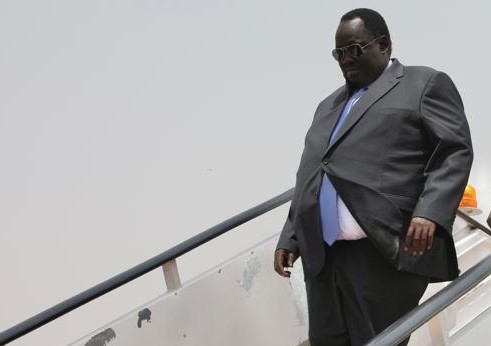South Sudan, Ethiopia sign cooperation agreement
August 16, 2022 (JUBA) – South Sudan and neigbouring Ethiopia have signed a security pact committing the two countries to promote bilateral relations on a host of issues that do not compromise safety and security.
The deal, signed on Tuesday in Addis Ababa, drew the participation of key security as well as law enforcement officials between the two countries.
South Sudan’s presidential adviser on security affairs, Tut Gatluak Manime, minister of interior, Mohamoud Solomon Age, director general of the internal bureau of the national security services, and Director General for Immigration Passports and Nationality Atem Marol Biar attended the event.
The head Ethiopia’s internal security, Berohetesefa Mulugeta represented his government.
Manime told {Sudan Tribune} on Tuesday that the pact commits the two countries to exchange information, conduct exchange visits and enhance training capacity building and information on Immigration, counter-terrorism, and border crossing crimes.
“We are here in our capacity as the representatives of his excellency the president of the republic of south Sudan, Gen Salva Kiir, and as the representatives of the people and the government of South Sudan. We conveyed the, especially of His Excellency to his brother, the prime minister of Ethiopia, Dr. Abiy Ahmed. We conveyed the message of assurance of unflinching cooperation and coordination of issues of mutual concerns and benefit to the citizens of the two countries and to promote peace and security in the region as part of their commitment to maintaining peace and stability in the region”, he explained.
The details of the memorandum of understanding that the heads of security and immigration officials have signed remain unclear. South Sudan and Ethiopia share a large swathe of porous borders with unoccupied spaces often suspected of being used by armed dissidents on either side as safe havens.
Security and defense officials in South Sudan with privy to the details of the deal say the government was pushing cooperation similar to what it has signed in September 2012 with neigbouring Sudan which commits the two countries to not host, train, arm, or allowed dissident group to not use the territory of either country as the launching pad for military activities into the other.
Meanwhile, the presidential security advisor stressed that the Grand Ethiopian Renaissance Dam (GERD) will not have a negative impact on downstream countries and is instrumental for regional energy integration.
“After witnessing the GERD’s construction site, we found that the dam is a large project and can provide all neighbouring countries with electricity….we have really seen a very big job,” he stressed.
For his part, however, the Ethiopian minister of Defense, Abraham Belay stated that the construction of the Grand Renaissance Dam is a project not only for Ethiopia, but also for Africans, especially for neighboring countries.
“The dam we are building is not only for Ethiopia but also for Africa. Rumours about the dam and the reality on the ground are totally different. The countries of the river basin should also understand that this dam ensures mutual benefit,” he said.
According to the minister, the dam has two bottom-outlets for the purpose of downstream countries so that they can get water throughout the year.
Belay, also Chairman of GERD Board of Directors, said Ethiopia has started supplying electricity to Sudan and Djibouti, with plans to supply Kenya soon.
(ST)

